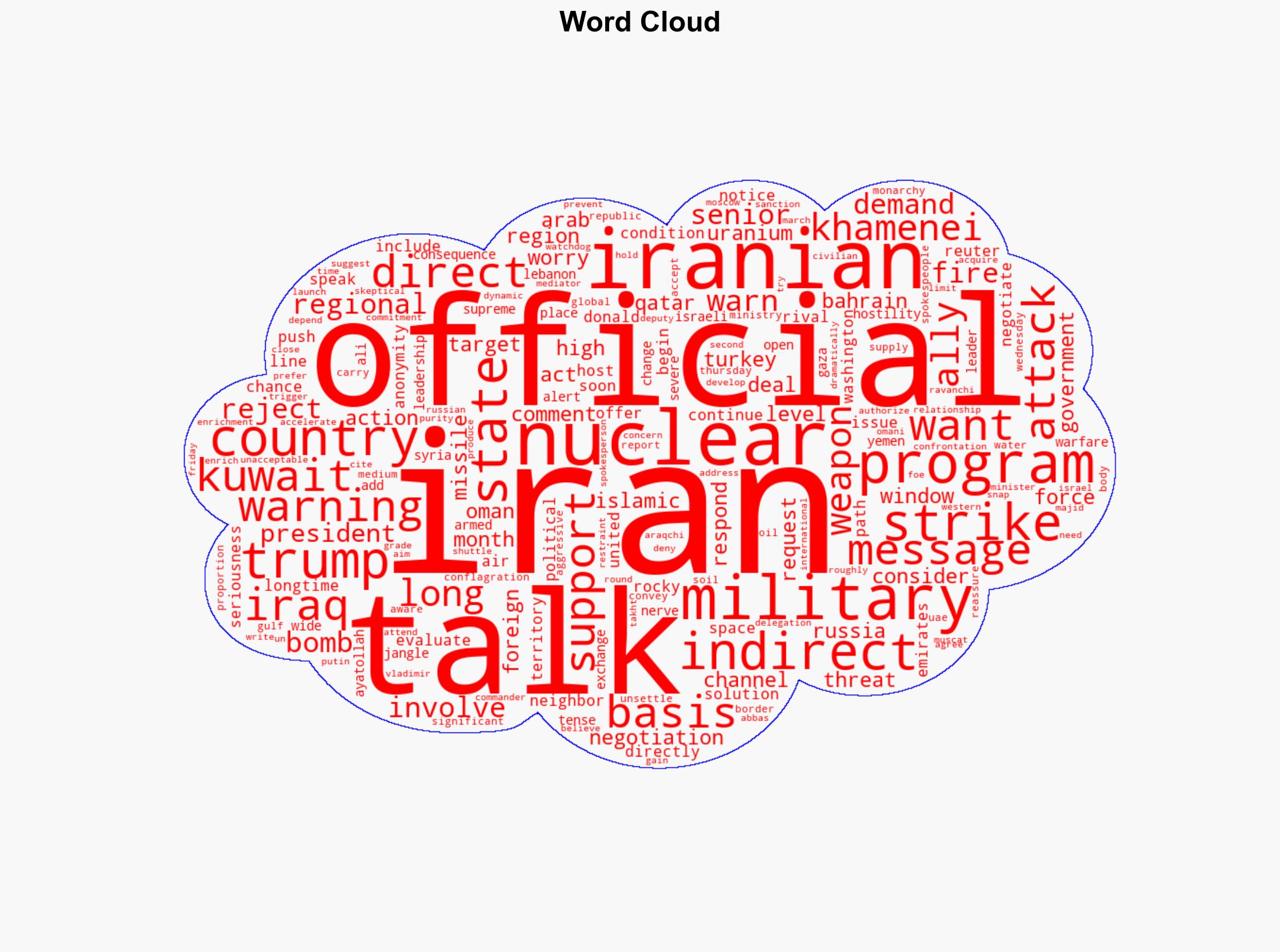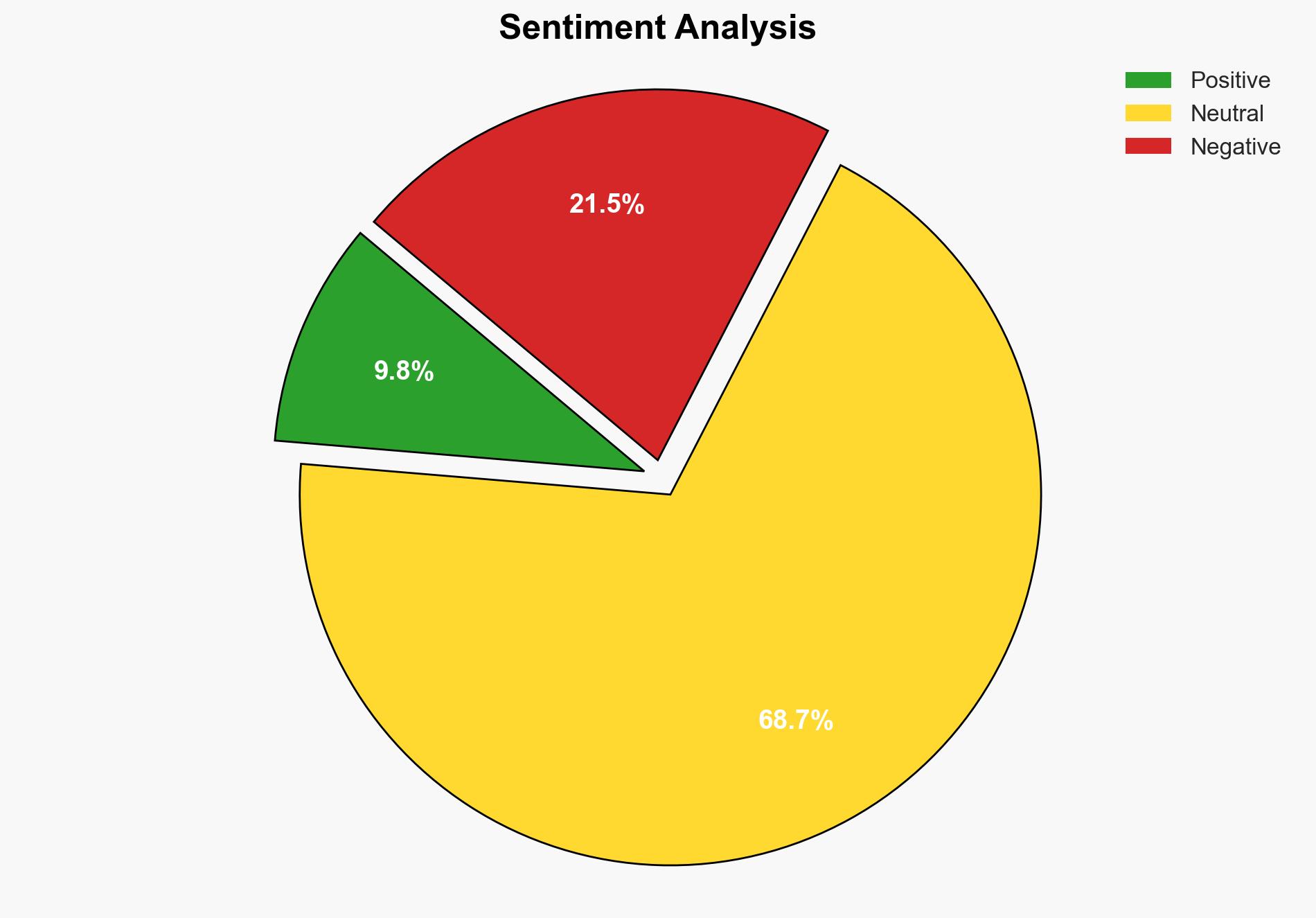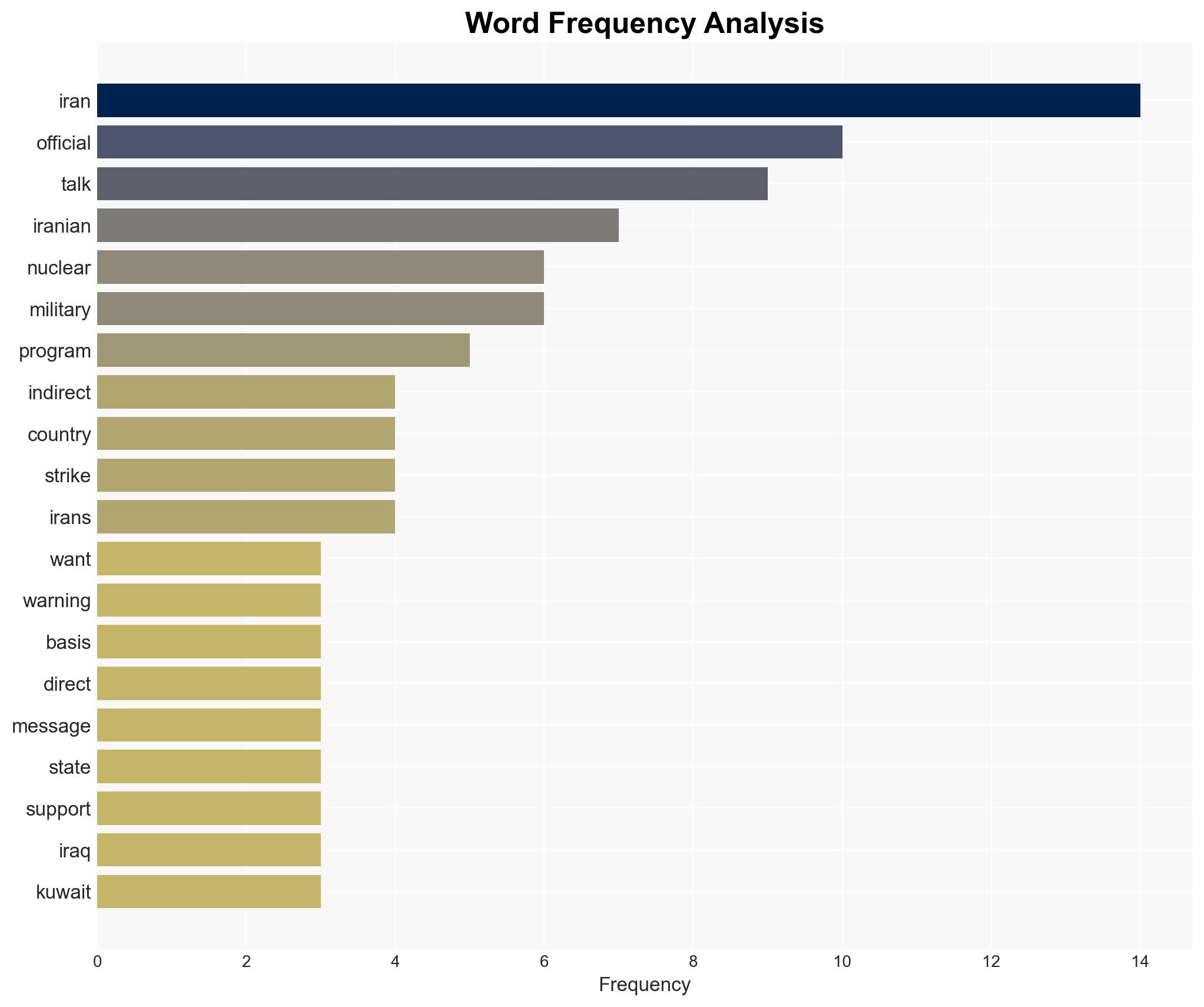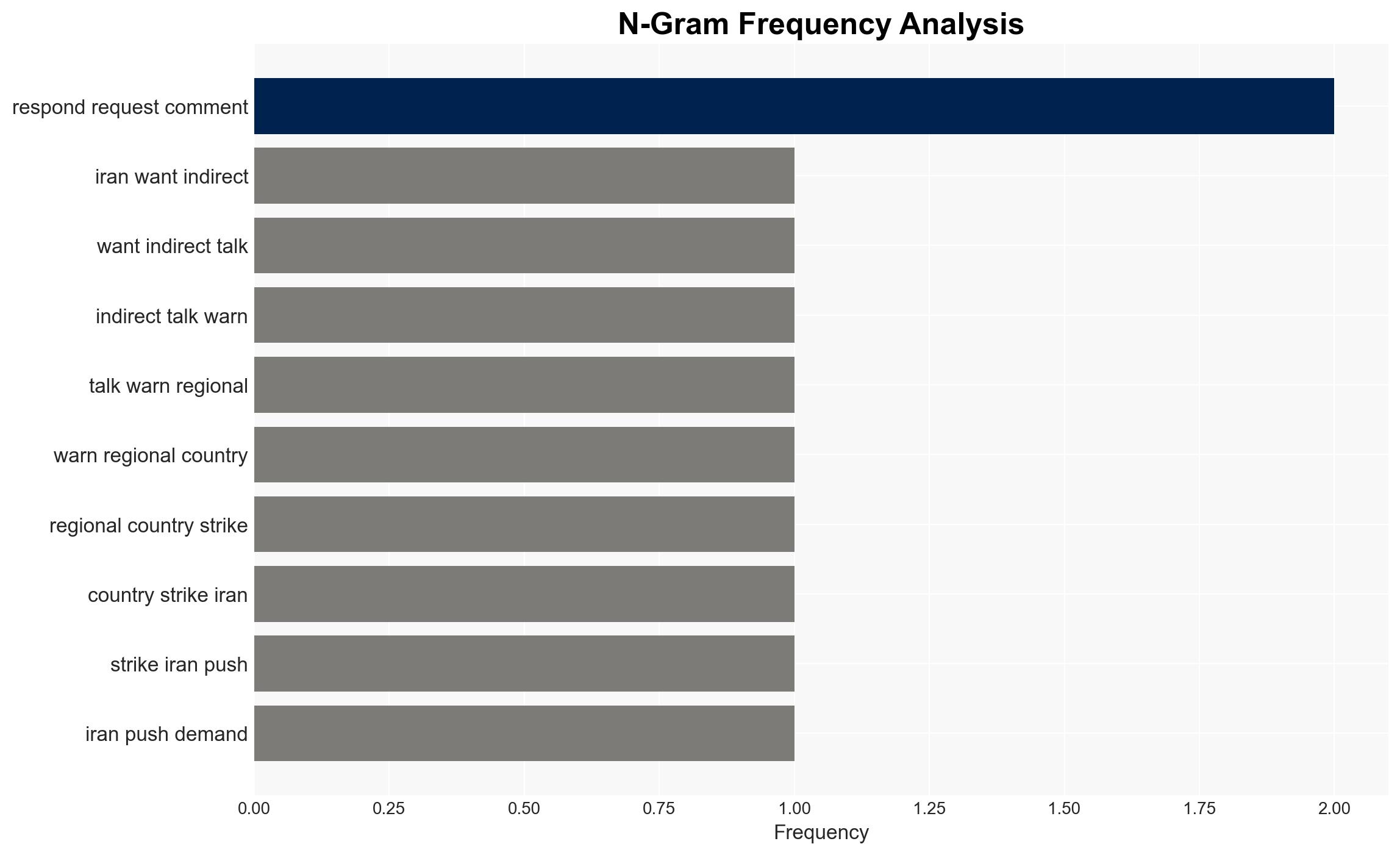Iran wants indirect talks with US warns regional countries over strikes against it – New York Post
Published on: 2025-04-06
Intelligence Report: Iran wants indirect talks with US warns regional countries over strikes against it – New York Post
1. BLUF (Bottom Line Up Front)
Iran seeks to engage in indirect negotiations with the United States concerning its nuclear program, while simultaneously issuing warnings to regional countries against facilitating military strikes on its territory. This dual approach reflects Iran’s strategic aim to evaluate the seriousness of the US’s political intentions while deterring potential regional hostilities. The situation remains tense, with significant implications for regional stability and global oil supply security.
2. Detailed Analysis
The following structured analytic techniques have been applied for this analysis:
General Analysis
Iran’s preference for indirect talks, facilitated by Oman, highlights its reluctance to engage directly with the US under current conditions. This strategy allows Iran to assess US intentions without committing to a formal negotiation process. The warnings issued to neighboring countries, including Iraq, Kuwait, the UAE, Qatar, Turkey, and Bahrain, underscore Iran’s concerns about potential military actions and its readiness to respond to perceived threats. The heightened alert status of Iran’s armed forces, as directed by Ayatollah Ali Khamenei, further indicates the seriousness with which Iran views the current geopolitical climate.
3. Implications and Strategic Risks
The ongoing tensions pose significant risks to regional stability, particularly in the Gulf region, which is crucial for global oil supply. The potential for military confrontation could disrupt oil exports, leading to economic repercussions worldwide. Additionally, the involvement of multiple regional actors increases the complexity of the situation, with the possibility of broader conflicts arising from miscalculations or escalations. The indirect talks, if successful, could mitigate some risks by providing a diplomatic channel for addressing nuclear program concerns.
4. Recommendations and Outlook
Recommendations:
- Encourage diplomatic engagement through trusted intermediaries to facilitate dialogue and reduce tensions.
- Enhance intelligence-sharing mechanisms among regional allies to monitor developments and prevent escalation.
- Consider economic incentives or sanctions relief as leverage to bring Iran to the negotiating table.
Outlook:
Best-case scenario: Successful indirect talks lead to a de-escalation of tensions and a framework for addressing nuclear program concerns.
Worst-case scenario: Breakdown in communication results in military confrontations, disrupting regional stability and global oil markets.
Most likely scenario: Protracted negotiations with intermittent tensions, requiring sustained diplomatic efforts to maintain stability.
5. Key Individuals and Entities
The report mentions significant individuals and organizations, including Ayatollah Ali Khamenei, Donald Trump, Vladimir Putin, Abbas Araqchi, and Majid Takht Ravanchi. These individuals play pivotal roles in shaping the geopolitical landscape and influencing the outcomes of the ongoing negotiations.





